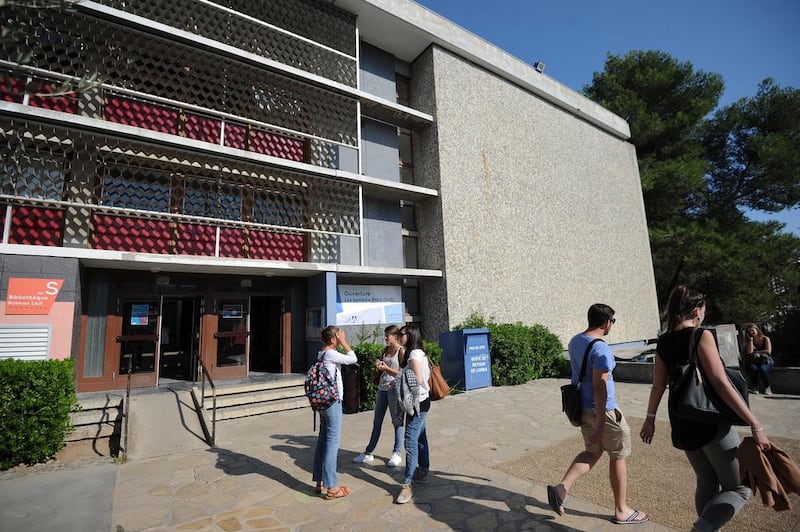Mahatma Gandhi was once asked what he thought about western civilisation. “I think it would be a good idea,” the great Indian leader replied. In the past week or so Gandhi’s riposte would seem to apply well to Europe today, going by two extraordinary news stories that illustrate a strange shift in values and priorities in parts of the continent.
The first was that Brighton College, a British boarding school that has educated prime ministers and generals (and which has two outposts in the UAE), has abolished the distinction between boys’ and girls’ uniforms. Girls may now wear trousers and a blazer which, admittedly, is not so out of the ordinary in terms of business dress.
But the spectacle of boys wearing skirts and “bolero” jackets might have had Old Brightonians such as Major General Sir Harry Prendergast, a veteran of the third Anglo-Burmese war and a holder of the Victoria Cross, spluttering into his impressively bushy moustache, were he around to see it. Curiously, though, the announcement – of what is a very radical change indeed – appears to have been greeted with near unanimous acceptance and approval in the UK.
The second was that the Danish parliament has passed legislation allowing the seizure of cash and valuables worth more than about $1,500 (Dh5,500) from asylum seekers. The law, which is supposed to help cover the cost of receiving these desperate people, was rightly described as “pilfering the possessions of refugees” by one of Amnesty International’s directors. Many in Denmark expressed their dismay at a move all too reminiscent of the treatment the Nazis meted out to those on the way to concentration camps, but the law passed with a big majority, 81 votes to 27.
Taken together, both are symptomatic of a growing propensity to dispense with traditional norms in the name of tolerance at home; while at the same time, intolerance of foreigners, and cultures and religions not seen as indigenously European, is increasing alarmingly.
Something very strange and unattractive is happening on the continent. I hesitate to concur with the US commentator Charles Krauthammer, who calls Europe “decadent”. But its moral compass certainly seems to have gone awry.
Progressives will see Brighton College’s rule change as an extension of freedom, another example of old taboos being done away with. In their view, it is part of a cultural shift that aims to liberate those who felt unable to express or be true to themselves under previous norms. Who could disagree with that?
One problem, however, is that it appears you are not allowed to disagree. Conformity to the new value system is compulsory. You will be forced to be tolerant, even when the previous norms had existed for centuries, and many who still cling to them (quietly) do so not out of malevolence but genuine belief. Even previous generations of progressives have fallen foul of this new orthodoxy. When Germaine Greer, once considered a radical feminist, said that she thought a man remained a man, no matter what operations he underwent to appear otherwise, she was howled down as transphobic, and a campaign was launched to ban her speaking in university campuses.
I asked Peter Hitchens, a long-standing defender of traditional values in the UK, why he thought there hadn’t been more of a fuss over the uniform issue. “Thoughtful conservative-minded people have grown wary of being lured into these elephant traps, where anything they say will promptly be twisted, stripped of its nuances and then denounced as cruel bigotry,” he replied.
I happen to disagree with many of Mr Hitchens’s views. But he is a decent man who articulates the sincerely held convictions of many. He, and others like him, do not deserve the vitriolic attacks to which they are even more prone in the age of those enablers of instant aggression, the internet and social media.
Societal norms change over time. Slavery, for instance, was once practised and widely accepted through much of the world. But when they change so rapidly, there is nothing tolerant about insisting millions of people reverse their beliefs overnight and condemning them if they do not – even if it is in the name of “enlightenment”.
Hand in hand with the expansion of personal freedoms goes the command that all judgment must be suspended on the exercise of the new liberties. This flies in the face of the obvious observation that just because you think that people should be free to do something, you don’t have to agree that they ought to; you may very well think they ought not. The late Roy Jenkins, a reforming British home secretary in the 1960s, implicitly conceded the point when he lamented that he stood accused of having ushered in the “permissive society”. He had been aiming, he said, for the “civilised society”.
This much-vaunted tolerance might at least have the virtue of consistency if it were extended to the minorities who call Europe home, and to the migrants, many fleeing persecution of such barbarity that they risk death to reach the continent’s shores, who ask only for the sympathy and hospitality of their fellow man.
Instead, communities whose continental roots go back generations are treated as fifth columnists, refugees living in miserable conditions are referred to as “a bunch of migrants” by Britain’s prime minister, David Cameron, while the new Danish law had some recent arrivals asking if their gold teeth were at risk of being pulled.
An ever-increasing validation of personal choice bordering on anarchic self-indulgence at home (so long as you’re “European enough”); and a shockingly cold-hearted attitude to those not lucky enough to have been born within its borders.
European civilisation? Yes, it would be a good idea.
Sholto Byrnes is a senior fellow at the Institute of Strategic and International Studies, Malaysia





